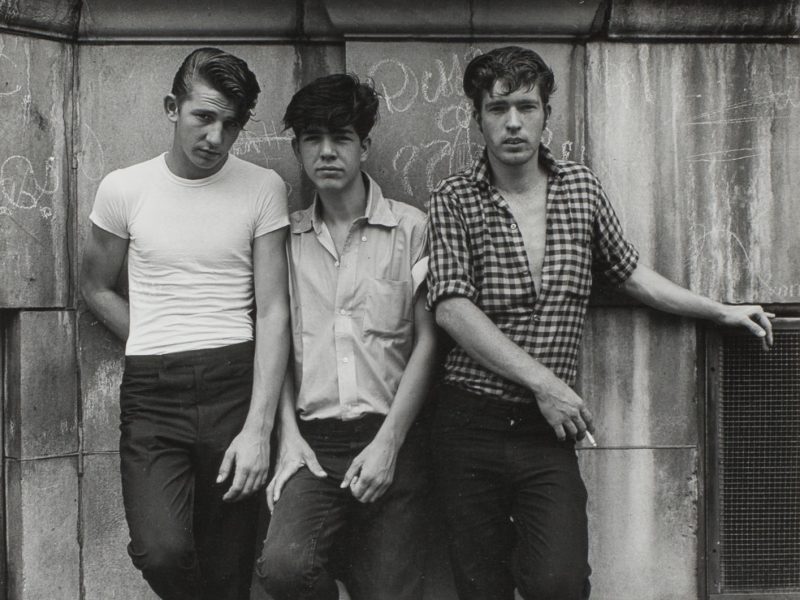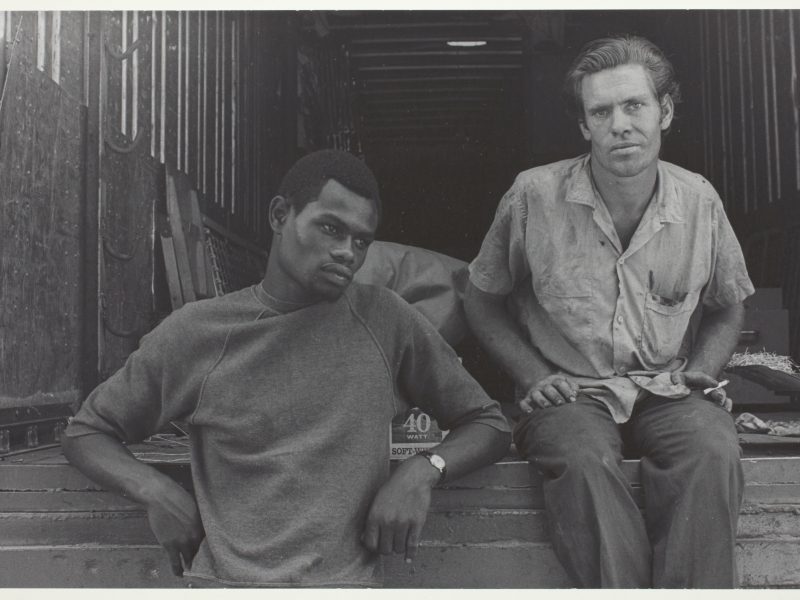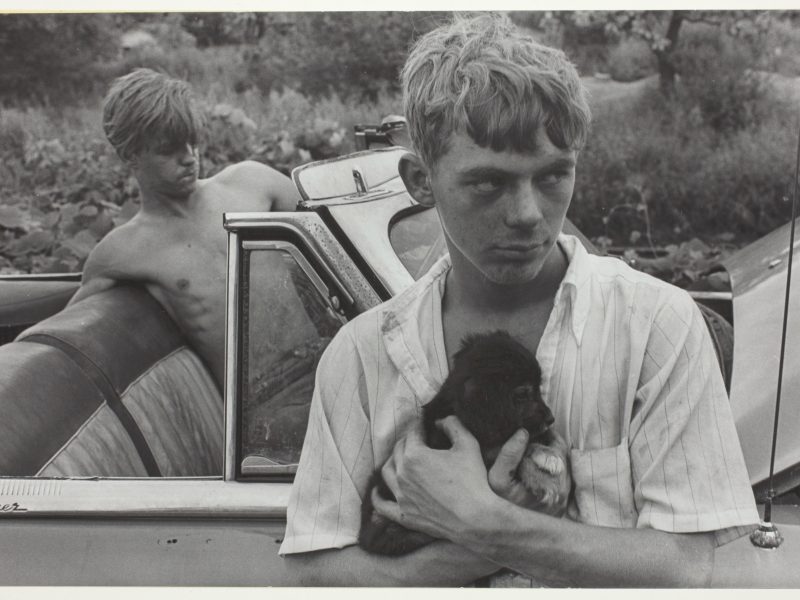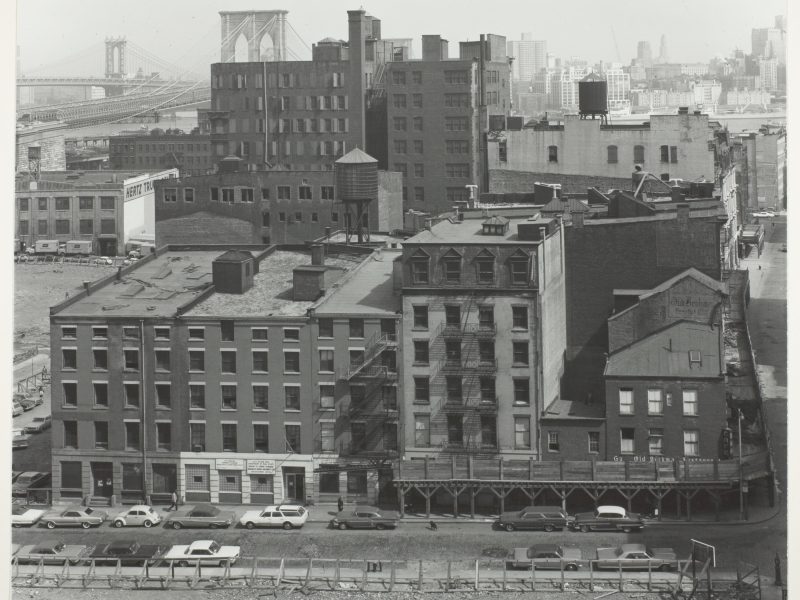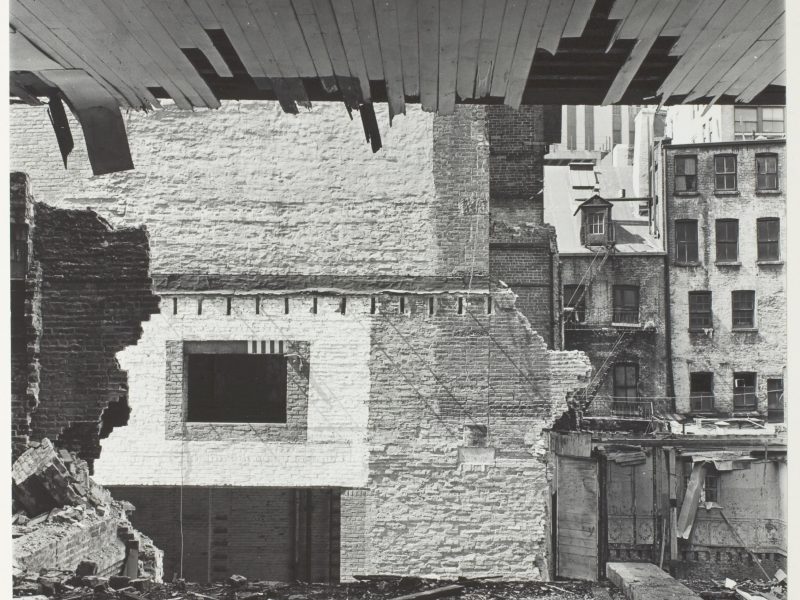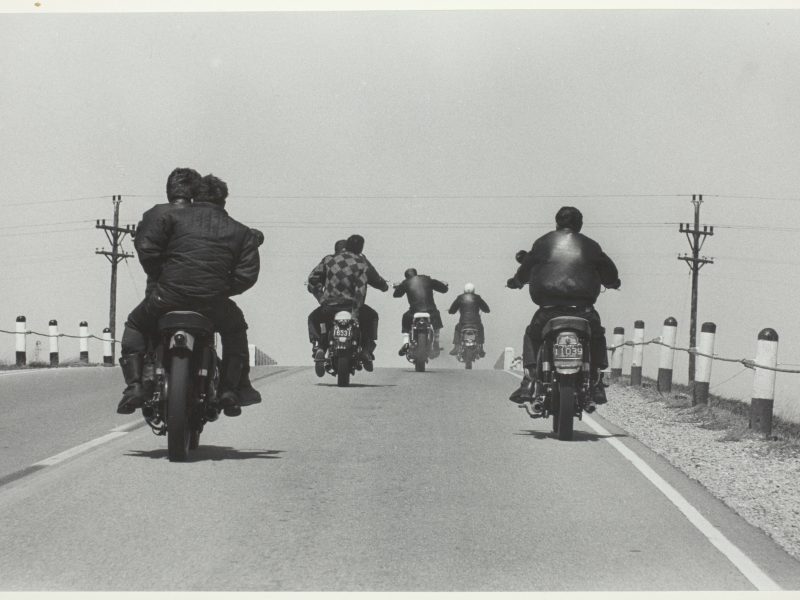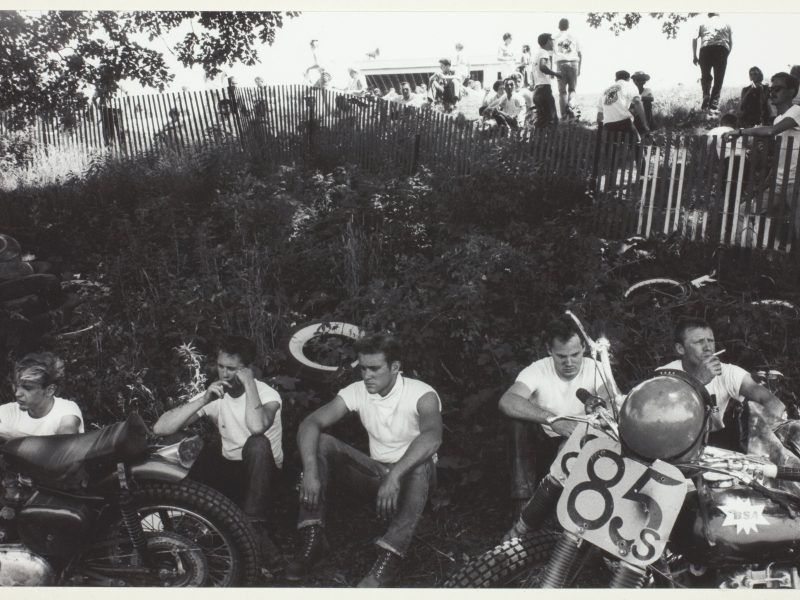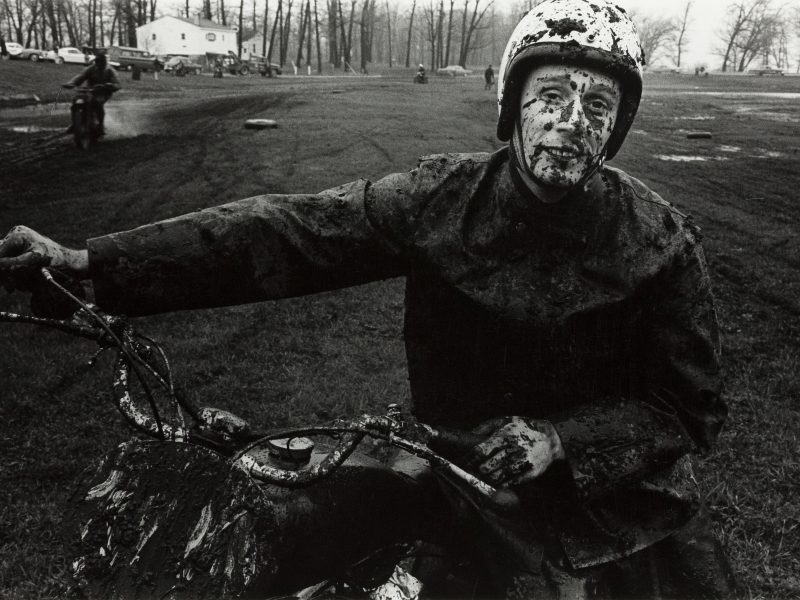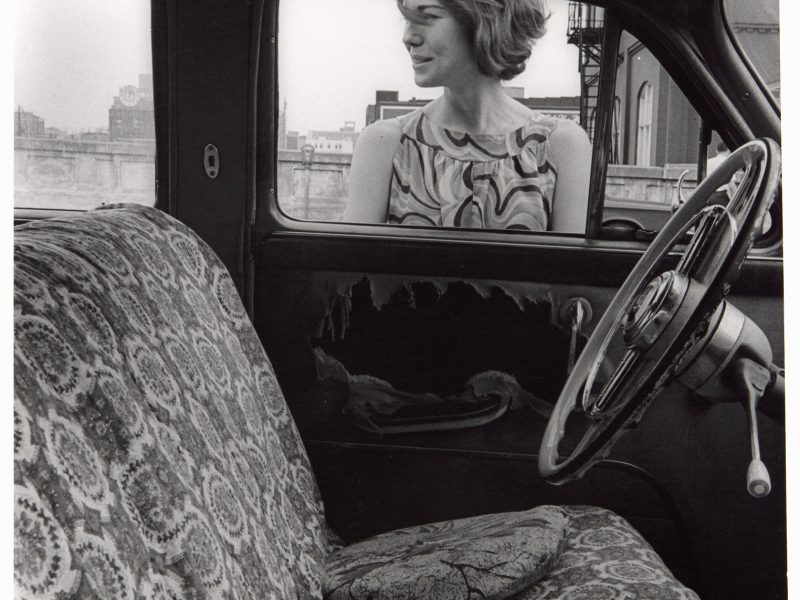Danny Lyon
Over a career spanning more than five decades, photographer and filmmaker Danny Lyon (American, born 1942) has become known for immersing himself in the cultures he documents. His preferred subjects often occupy the fringes of society, and his intensive investigations have resulted in acclaimed photographic series accompanied by books. His most notable publications feature examinations of the protests for civil rights in the south (The Movement, 1964); the members of the Chicago Outlaw Motorcycle Club (The Bikeriders, 1968); the demolition of a neighborhood to make way for commercial development in New York (The Destruction of Lower Manhattan, 1969); and the Texas penitentiary system (Conversations with the Dead, 1971). He began making films in the late 1960s, with topics ranging from the inhabitants of Bernalillo, New Mexico, to his own family. The recipient of numerous awards and the subject of many exhibitions, including a recent traveling retrospective, Lyon continues to photograph, write, and produce films and books to this day.
Lyon first met Hugh Edwards as an undergraduate at the University of Chicago, when the curator singled out his work at a student exhibition. The young photographer soon became a regular visitor to the Art Institute’s Print Study Room, viewing objects from the permanent collection with Edwards and showing him his own work as well. In 1963 Edwards responded to new photographs of the Chicago Outlaws with a letter that Lyon kept as a talisman: “This time you have gone farther on and present the exciting subject without getting between it and the camera,” he wrote. “Thank you and God for no too often served social messages in these pictures. In them you evoke and provoke emotions and are modest about your own self-expression.”[1] Edwards mounted Lyon’s first museum exhibition in 1966, which included images of the Outlaws as well as photographs Lyon had made, with a camera borrowed from the curator, of working-class residents of Chicago’s Uptown who had migrated to the city from Appalachia. When Lyon’s first monograph, The Bikeriders, was published, he dedicated it to his mentor, sending him the first press copy with a letter that said, “I will always associate you with this book because it came out of the time I began making pictures and you were so much a part of that for me.”[2]
In 1969 Edwards organized a second presentation of Lyon’s work—only one other photographer, Robert Riger, was exhibited more than once during the curator’s tenure—called Prison and the Free World, comprised of the Texas photographs along with images from Knoxville, Tennessee, and Lower Manhattan. The exhibition’s introductory label praised Lyon’s growth and continued promise: “His fidelity to the principles of the photographic medium, his unprejudiced approach to truth, and his moving concern for humanity, all justify his position and influence as a unique and original young American photographer.”[3] During his tenure as curator, Edwards added over forty Lyon photographs to the collection. After his death, Edwards’s personal collection—which included gifts of prints from The Bikeriders and early images from Conversations with the Dead Lyon sent as he developed and printed them on site in Texas—joined these holdings.
[1] Edwards to Danny Lyon, May 8, 1963, Hugh Edwards Archive, collection of David and Leslie Travis.
[2] Danny Lyon to Hugh Edwards, Jan. 22, 1968, Hugh Edwards Archive, collection of David and Leslie Travis.
[3] Edwards, exh. label for Prison and the Free World: Photographs by Danny Lyon, 1969, on file in the Photography Department, Art Institute of Chicago.
